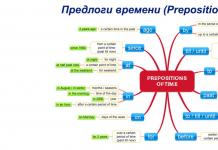The temperature of hot water in the tap according to the standard in 2020 is regulated by SNiP (building codes and regulations) N II-34-76 and SanPiN 2.1.4.2496-09. These documents determine the quality of water supplied to residential buildings for household and drinking needs.
Poor quality of tap water
In addition to temperature, hot water must meet parameters such as purity and pressure. What is the use of hot water if it runs in a thin stream or is dirty? Increased pressure is also not a reason for joy: it entails the breakdown of couplings, valves and other elements of the water supply system.
For hot water, pressure limits are set from 0.3 to 4.5 atmospheres. Going beyond these boundaries is a direct reason for applying to the Criminal Code for recalculation.
Impurities in the aquatic environment can be both organic and inorganic origin: rust, getting into the earth system, rotting wood, etc. If such cases are frequent and prolonged, it is necessary to file a complaint with the water utility with a request to inspect the treatment systems, which should be carried out jointly with the housing office.
How to file a complaint?
If, in accordance with these Rules, the amount of the payment for the utility service for the billing period is formed incompletely and is subject to further adjustment, then the amount of the reduction in the payment for the utility service for such a billing period cannot exceed the finally calculated amount of the payment for the corresponding utility service for such a billing period.
99. In case of interruptions in the provision of communal services exceeding the established duration, as well as in the event of interruptions in the provision of communal services for repair and maintenance work within the established duration of breaks, the amount of payment for such a communal service, calculated in the absence of a collective (general house), individual or general (apartment) metering device of the corresponding type of communal resource is reduced by the amount of payment for the volume of unprovided communal services.
100. The volume (quantity) of the utility service not provided during the billing period for general house needs in an apartment building in the absence of a collective (common house) meter for the corresponding type of communal resource is calculated based on the duration of the non-provision of the utility service and the standard for consumption of utility services for general house needs.
The volume (quantity) of the utility service not provided during the billing period to the consumer in a residential or non-residential premises in the absence of an individual or common (apartment) metering device of the corresponding type of utility resource is calculated:
based on the duration of non-provision of public services and the standard for the consumption of public services - for residential premises;
based on the duration of non-provision of public services and the estimated value of consumption of public services, determined in accordance with paragraph 43 of these Rules - for non-residential premises.
The volume (quantity) of the non-provided public heating service is calculated only in cases where the apartment building is not equipped with a collective (common house) heat energy meter or when the apartment building is equipped with a collective (common house) heat energy meter and not all residential or non-residential premises of the apartment building are equipped with individual or common (apartment) heat meters.
101. When providing a utility service of inadequate quality in the billing period, the amount of payment for such a utility service, determined for the billing period in accordance with Appendix No. 2 to these Rules, is subject to reduction by the amount of the fee calculated in total for each period (day) of providing such a utility service of inadequate quality, in the cases provided for in Appendix No. 1 to these Rules, and for the cases provided for in paragraph 148 (53) of these Rules, the amount of payment for a utility service of inadequate quality is subject to reduction in the manner provided for in Appendix No. 3 to these Rules.
(see text in previous edition)
The amount of the fee calculated in total for each period of providing a utility service of inadequate quality is determined as the product of the amount of the fee for the utility service determined for the billing period in accordance with Appendix No. 2 to these Rules and the ratio of the duration of the provision of the utility service of inadequate quality in the specified billing period to the total duration of the provision of public services in such a billing period.
102. When applying two-part tariffs, the payment for utility services is reduced:
a) when carrying out repair and preventive work that entail interruptions in the provision of public services and the duration of such interruptions does not exceed the time limits established in Appendix No. 1 to these Rules - only in relation to the variable component of the payment for the utility service, which is determined in accordance with the law of the Russian Federation on the state regulation of tariffs based on the volume of consumption of the corresponding type of communal resource;
b) in the provision of public services of inadequate quality and (or) with interruptions exceeding the duration established by Appendix No. 1 to these Rules, including in connection with the repair and maintenance work - in relation to all components of the payment for the utility service.
103. If the contractor is a resource-supplying organization that, in accordance with an agreement containing provisions on the provision of utility services, does not service in-house engineering systems, then such an organization changes the amount of the utility service fee in the event that a violation of the quality of the utility service and (or ) interruptions in the provision of public services occurred before the boundary between the elements of in-house engineering systems and centralized networks of engineering and technical support.
In this case, if a violation of the quality of the utility service and (or) interruptions in the provision of utility services that exceed their established duration occurred in the in-house engineering systems, then the change in the amount of payment for the utility service is not made, and consumers have the right to demand compensation for the losses caused to them, in including those caused by the payment of a fee for an unprovided utility service or a utility service of inadequate quality from persons involved by the owners of premises in an apartment building or the owners of residential buildings (households) to service in-house engineering systems.
Open the full text of the document
As you know, the Rules for the provision of public services, approved by the Decree of the Government of the Russian Federation of 05/06/2011 N 354 (hereinafter - Rules 354), provide for a reduction in the cost of utilities in case of non-compliance with the quality of services to established standards and in case of interruptions in the provision of these same services that exceed the established duration. Let's try to figure out how the presence or absence of a utility meter affects the size of the recalculation.
Recalculations related to the discrepancy between the quality of services and established standards are not affected by metering devices for the volume of consumed services; there are no disputes in this matter.
A much more interesting question is how recalculations should be made due to interruptions in the provision of utilities, depending on the presence / absence of metering devices for these utilities.
Practically throughout the Russian Federation, the following practice has developed: recalculations for the underdelivered volume of utility services are provided to the owner/tenant of the premises only in the absence of ISP. And if the device is available, it is considered that the device during the period of non-provision of the service already shows zero consumption, thereby measuring the actual volume of consumption of the service, the cost of which is presented for payment to the owner / tenant, whose premises are equipped with an individual metering device. For some reason, such a scheme for providing recalculations is considered fair and consistent with current legislation.
The logic of such "recalculators" is simple: a person must pay for the amount of utility services provided. If he installed the IPU, then the device will measure the volume, and you need to bill for this volume. If there is no device, and the calculation is carried out according to the standard, then the volume of the actually consumed service must be calculated taking into account the interruption in the provision of this service, i.e. do a recalculation.
Adherents of such logic forget one essential point. The recalculation of the cost of the CU aims not only to determine the payment for the actually consumed volume of the service, but also some kind of "penalties". After all, the peculiarity of the utility service is that it should always be available! Any owner / tenant of an apartment has the right to expect that when the valve is turned, water will flow from the tap. And if this water does not flow, i.e. service is not available, then not only should the fee for this service be canceled, but some “damage” caused to a conscientious consumer should also be compensated.
That's just such logic is confirmed by the legislation!
Paragraph 98 of Rules 354 establishes: “When providing a consumer ... a utility service ... with interruptions exceeding the established duration, as well as interruptions in the provision of a utility service for repair and maintenance work within the established duration of breaks, the amount of payment for such a utility service for billing period is subject to reduction up to the complete exemption of the consumer from payment such a service...
What does “up to full exemption from payment” mean? After all, guided by the logic of the absence of recalculations in the presence of ISP, it is obvious that full exemption from payment can be only with zero consumption of the service (according to ISP). If the device shows at least a liter of water, then this water must be paid.
And when are the "regulators" (who do not have IPU) exempted from payment? It is logical to assume that they are exempted from payment when the service was not provided at all during the billing period!
What does Rule 354 say about this?
The aforementioned paragraph 98 of Rules 354 reads: "... the conditions and procedure for changing the amount of payment for utilities in the provision of utilities of inadequate quality and (or) with interruptions exceeding the established duration are given in Appendix No. 1 to these Rules ...".
We open Appendix 1. We see that during interruptions in the provision of any type of utility service over the established limit, a recalculation is carried out in the amount of 0.15% for each hour of such an excess.
And the limit on the duration of breaks is set, I must say, low. For cold water, hot water, water disposal - 8 hours per month (total), for gas supply - 4 hours per month (total), for heating and electricity - 24 hours per month (total).
Consider an example. Cold water was turned off in the house. Let this happen in a month that has 30 days. There was no water for 29 days. On the thirtieth day they gave water, and people began to wash, wash everything around, etc. In general, they consumed water in an amount many times higher than their usual consumption. Then all the tenants applied for recalculation.
And here is the recalculation for the "normatives":
The interruption in the provision of cold water was 29 days X 24 hours = 696 hours. Permissible break 8 hours. For each hour over the allowable break, the fee must be reduced by 0.15%. The total fee will decrease by (696 - 8) x 0.15 = 103.2%! Those. there will be just a case of "complete exemption of the consumer from payment."
And the “happy” owners of the IPU will be told: “And your meters for this very day have wound up two cubic meters! Please pay!" Let's not be surprised at "injustice", in most of the Criminal Code and RSO, all our indignations will reasonably be noted: "Law and justice are different things!" And they will be right, but not in this case.
Let's not talk about justice and immediately turn to the law.
Once again, carefully read paragraph 98 of Rule 354 ( quoting it in full):
« 98. When providing in the billing period to the consumer in a residential or non-residential premises or for common house needs in an apartment building, utility services of inadequate quality and (or) with interruptions exceeding the established duration, as well as during interruptions in the provision of utility services for repair and maintenance work in within the established duration of breaks, the amount of payment for such a utility service for the billing period is subject to reduction up to the complete release of the consumer from payment for such a service.
Requirements for the quality of public services, permissible deviations from these requirements and the permissible duration of interruptions in the provision of public services, as well as the conditions and procedure for changing the amount of payment for public services in the provision of public services of inadequate quality and (or) with interruptions exceeding the established duration, are given in the Appendix. N 1 to these Rules.
If, in accordance with these Rules, the amount of the payment for the utility service for the billing period is formed incompletely and is subject to further adjustment, then the amount of the reduction in the payment for the utility service for such a billing period cannot exceed the finally calculated amount of the payment for the corresponding utility service for such a billing period.
So, as we can see, there is no mention of the dependence of recalculation on the presence or absence of a counter!
Those. for a break in the provision of public services to owners / tenants of premises equipped with ISP, need to recalculate! There can be no other interpretation of paragraph 98 of Rules 354!
The question immediately arises - how then to apply paragraph 99 of the same Rules 354? After all, it says right there: In case of interruptions in the provision of public services exceeding the established duration, as well as in the event of interruptions in the provision of public services for repair and maintenance work within the established duration of breaks, the amount of payment for such a public service, calculated in the absence of a collective (general house), individual or common (apartment) metering device of the corresponding type of utility resource, is reduced by the amount of payment for the volume of utility services not provided».
What does it mean? Paragraph 99 contradicts paragraph 98? Or refines it?
In fact, there is no contradiction or clarification. Clause 98 and clause 99 are subject to application. And they are talking about two different recalculations.
Paragraph 99 just establishes the obligation to make the type of recalculation that is basically applied now. This recalculation is associated with a reduction in fees for the cost of undelivered utility services. In this case, we are really talking about determining the actually consumed volume of the service. Therefore, for premises equipped with metering devices, this volume is determined by the IPI, and recalculation is not required, but for premises not equipped with IPI, the actual volume consumed must be calculated, namely, reduce the standard value by an amount proportional to the duration of the interruption in the provision of services for billing period. It is this procedure that is established by clause 100 of Rules 354.
But paragraph 98 establishes "penalties" for service interruptions. And these "sanctions" are applied regardless of the presence / absence of metering devices.
In this way, recalculations for interruptions in the provision of CG are made as follows:
1. For premises not equipped with IPU:
1.1. Based on clause 99 of Rule 354, the amount of consumed HC must be reduced. The procedure for calculating the volume by which the volume established by the consumption standard is subject to reduction is given in clause 100 of Rules 354.
1.2. On the basis of clause 98 of Rules 354, the payment for consumed HC is reduced (in the amount reduced on the basis of clause 99) in accordance with Appendix 1 to Rules 354.
That is, first the actual volume of the consumed service is determined (by reducing the consumption standard), then the cost of this actually consumed volume is reduced by 0.15% for each hour of exceeding the permissible duration of the interruption in the provision of CG.
2. For premises equipped with IPU:
2.1. On the basis of clause 98 of Rules 354, the payment for consumed CG is reduced (in the amount determined by the ISP) in accordance with Appendix 1 to Rules 354.
That is, the actual volume of the consumed service is determined by the ISP, then the cost of this actually consumed volume is reduced by 0.15% for each hour of exceeding the permissible duration of the interruption in the provision of CG.
I repeat once again: recalculation for a break in the provision of a utility service exceeding the allowable duration, in accordance with Rules 354, is provided to all consumers, regardless of the presence or absence of utility meters
continuation of the topic of recalculations
Reading time: 14 min
The accounting system for consumed utilities is being improved every year. Electronic resources have appeared for remote readings and even devices that independently send data from the meter. However, it is not always possible to completely eliminate errors, and the cost of utilities, in particular for water supply, is often overstated. In such cases, water recalculation helps to avoid further overpayment.
Dear visitors!
Our articles are informational in nature on the solution of certain legal issues. However, each situation is individual.
To solve a specific problem, fill out the form below, or ask an online consultant a question in the pop-up window at the bottom right of the screen or call the numbers listed on the site (24 hours a day, seven days a week).
In case of conflicts with the Criminal Code, as well as in situations where it is not clear what to do, it is worth contacting lawyers. They will prompt the procedure for applying to the Criminal Code, the housing inspectorate, the court or an independent examination for reconciliation.
ContentShow
Legal regulation and grounds for recalculation of hot water and cold water
In order to make a valid application, you need to know the relevant legal regulations. Issues of payment for utilities are regulated by several acts. The most detailed procedure is specified in Resolution 354.
Government Decree No. 354
It contains the following provisions:- terms of use;
- the rights and obligations of the owner, as well as the organization providing services;
- payment order;
- cases of recognition of housing and communal services as poor quality, including facts of violation of their provision;
- features associated with the use of a central cold water and hot water system, or a separate column;
- the responsibility of the parties.
You do not need to fully delve into the text of the document to solve the problem. You should pay attention to specific articles.
Recalculation for hot water is possible if:- there were errors when entering data into the accounting system - in case of discrepancy with the actual testimony;
- water does not meet sanitary and hygienic standards after cleaning (approved);
- the pressure in the water supply pipes is lower than required;
- emergency deadlines were violated.
All grounds are listed starting at . Paragraphs 86 to 98 describe the procedure for recalculation.
Other legislative acts
Water supply issues are also covered by other legal documents:- . You can refer in the text of the application to, indicating the binding of the amount of payment to the regional tariff. The components of payment for utilities are also established - cold water, hot water, sewerage and energy.
- The concepts of water supply to multi-apartment residential buildings, as well as the rules for the supply of hot water, can be found in.
It is not necessary to refer to these sections, but their knowledge can help in cases of protracted disputes with the management company.
Watch the video:"Recalculation of housing and communal services with your own hands. Part 1."
Nuances and grounds for recalculation for water consumption
In order for the recalculation to pass without problems, little is required from the consumer. It is necessary to install meters (it is desirable not to lose technical passports) and take readings in a timely manner.
In this case, 4 situations can be distinguished, which are considered the basis for changing the amount in the receipt:- Incorrect information - intentional or accidental.
It is detected during a scheduled inspection - a bypass by employees of apartments. They fix the differences and transmit the data to the settlement center, where the accruals are adjusted. In some cases, recalculation after checking water meters, the next receipt may come with a minus sign, and it will not be necessary to pay utility bills for the next 2-3 months. - Violation of the rules for connecting to the central water supply system.
The audit report is drawn up by specialists of the management company. As a result, the tenant receives an order to fix the connection, as well as charges for unaccounted for water. - Interference with the work of the ISP.
If the seal is broken, then the recalculation will be done only from the date of its renewal. In this case, the application is accepted no later than three months from the moment the interference was discovered - a security measure against unauthorized actions. - Low quality CU.
If the non-compliance with the standards is confirmed, the decision is made in favor of the owner of the apartment. At the same time, he has the right to demand compensation from the management company - the case is regulated by and.
The complication of the situation with incorrect charging of fees usually occurs in the absence of metering devices, as well as in some cases.
If you haven't filed for 2020
It's worth starting from the main. By analogy with the concept of a statute of limitations, there is a limited period in which an application can be filed.
Conditions for recalculation of water by meters, if readings have not been submitted for a long time:- Indications were not provided from 1 to 5 months.
In this case, the metering device is considered faulty, and the calculation takes place at the calculated average monthly rate. In this case, recalculation is possible only after the responsible persons check the state of the counters. If the device is in good working order and the seals have not been damaged, then you can apply. - From half a year or more.
Skipping 6 billing periods in a row is the basis for refusing to reduce the amount of payment. In this case, the management company is obliged to initiate an IPU check and take readings. This issue is described in more detail in.
You should not miss the dates for submitting information from meters for a long time, because the difference in tariffs is significant. In addition, it is worth considering unforeseen circumstances, due to which 2 missed months can turn into six months, making the loss of funds irrecoverable. This threatens the formation of debt in payment receipts.
If there are no counters
A separate point is the recalculation for KU in apartments where the meter is not installed. Such cases are described in . The reason for this is the absence of the tenant for more than 5 days in a row.
There are two nuances:- Only recalculation for hot and cold water is provided. Water disposal for general house needs is not affected.
- Documents must be attached to the application to confirm the fact of departure.
At the same time, it is possible to appeal to legislative acts only if it is impossible to install a water meter. If metering devices are not installed at the request of the CU consumer, the application will be refused.
The state strictly suppresses attempts to abuse the rights. For example, the provision of an apartment for rent during the absence. If it is discovered that someone is living on the premises, at best, a refusal will be received, and at worst, liability for fraudulent activities.
Recalculation for hot water of inadequate quality
The most significant part of the utility bill is hot water.
The definition of hot water supply provides for specific standards that it must comply with:- Heat. The minimum DHW temperature is 65 degrees. At the same time, the permissible difference for the daily period is set - a discrepancy of up to 3 (daytime) and 5 degrees (at night). If barely warm water comes out of a hot tap (below 40 ° C), payment is made according to the cold water tariff.
- If the DHW is "rusty", then a test can be initiated. In practice, the method is of little use, when water of inadequate quality is supplied continuously, most likely, planned work is taking place. In this case, it is difficult to prove the fact of violation of the terms of their duration.
For recalculation for low-quality hot water, a special formula is used.
The formula for recalculating hot water of inadequate quality
The interval in which the hot water supply does not correspond to the norm is from 40 to 64 ° С. Higher - acceptable, lower - recognized as cold. For every three degrees below the norm, the cost of the service falls by 0.1%. The calculation algorithm is indicated in paragraph.
Example
For convenience of calculations, we will take a tariff of 330 rubles per square meter.
Within a month, a resource with a temperature of about 55 ° C was supplied from a tap with hot water, then the hot water is recalculated as follows:- A multiplier is determined - 0.1% for every three degrees of deviation. Total, 0.3%.
- The tariff is divided by the number of calendar days in the period. 330 / 30 = 11 rubles for every 24 hours.
- The fee for 1 day, the coefficient and the number of hours in the billing period are multiplied - 11 * 0.003 * 720 = 23.76. This is the recalculation amount.
- The resulting value is deducted from the monthly tariff. The total payable will be 330-23.76 = 306.24 rubles.
For your information: the decrease in service is considered not in tenths, but in fractions of a percent, i.e. not 0.1, but 0.001.
Recalculation for hot water during a scheduled shutdown
If the DHW is turned off during the annual work at the Vodokanal, the conditions specified in:
FREE legal advice!
Haven't figured out the material of the article or need help? Ask a question to our in-house lawyer through the "Online Consultant" form or leave a comment. We will definitely answer!
- duration of events every 12 months. - no more than 14 days;
- consumers must be notified 10 days prior to shutdown.
In case of violation of the deadlines, the fee is reduced by 0.15% for each hour of excess. If the duration is respected, then the recalculation for hot water will not be presented.
Note: There are also maximum time limits for unscheduled suspension. In case of accidents, the DHW should not be turned off for more than 4 hours in a row.
How to write an application for recalculation
There is no strict format for writing an application. It is enough that it contains all the necessary data. In addition, you should correctly indicate information about the applicant and the organization to which the appeal is received. It is also worth preparing the necessary documents and taking into account the time limits for submitting an application.
Limitation period for recalculation for hot water
This nuance is important for consumers of utilities when it is impossible to install metering devices. There are time limits for filing an application in case of departure. You must apply for recalculation no later than 1 month from the date of return. In case of delay, the adjustment of accruals will be denied.
It is best to write a statement before departure, attaching documents confirming the period of absence. Application processing time - 5 working days.
Application for recalculation of water by meters
The application is submitted in writing.
It must contain:- The name of the Criminal Code and the responsible person.
- FULL NAME. and contacts of the applicant.
- Request for recalculation.
- Indication of justifications with references to laws.
- Information about the calculation of the fee, the amount of which is disputed.
- Signature and date.
The easiest way is to draw up an application for the recalculation of water according to the meters according to the model.
Required supporting documents
Before applying to the Criminal Code, you need to collect documents for attachment to the application.
These include:- certificate of verification of the meter with the act of reconciliation of testimony;
- results of measurements of hot water temperature;
- documents on turning off water supply;
- expert opinion on the quality of hot water samples.
The more papers you can provide, the higher the chance of a decision in favor of the consumer. The presence of all relevant acts on the problem is an indicator of the correctness and validity of the appeal.
Where to complain in case of refusal to recalculate water
After submitting an application without evidence, the management company may refuse to recalculate.
Other legal grounds:- violation of the statute of limitations;
- ignoring the need to check the IMS for responsible persons to have access to meters.
If the application was drawn up correctly, the documents are attached, and the Criminal Code still refuses to recalculate, then you can write a claim. It is submitted to the state housing inspection.
It is necessary to describe the problem, complain about the illegal actions of the Criminal Code, list the names of employees and the dates of submission of applications. In the text, you can refer to the violation of the Housing Code by the management company - and in the form of non-fulfillment of obligations. A copy of the application should be attached to the complaint, ideally with a note of delivery from an employee of the management organization.
FREE legal advice!
Haven't figured out the material of the article or need help? Ask a question to our in-house lawyer through the "Online Consultant" form or leave a comment. We will definitely answer!
Appeals to the inspection are considered in the following order:For your information: in order to improve work with consumers, most CCs record conversations. It would be useful to indicate the dates and approximate time of calls if there were attempts to solve the problem by phone.
- registration - within three working days;
- 1 month takes the review itself, during the same period, checks are carried out;
- The response is sent to the specified contact information.
As a result, it is allowed to initiate a procedure for analyzing the activities of the Criminal Code, which can result in large fines and referral of the problem to the court. Sometimes facts are revealed that do not allow the housing inspectorate to act within its competence. In this case, the applicant receives a refusal with an explanation and an indication of the authorities to which the claim is redirected.
Judicial practice on recalculation after verification of water meters
The last instance, where they turn to, if necessary, recalculation is the court. The lawsuit should list violations of articles of the LCD and rights by the Criminal Code. In this case, the state fee is not paid, since the appeal is considered a claim for the protection of consumer rights.
Additionally, the possibility of pre-trial settlement and the amount of compensation to be paid by the management company are indicated. The rest is a standard claim.
Going to court is a last resort and usually never comes to that. Recalculation for water by meters is a standard procedure, and most often occurs due to a common mistake. It is important to promptly respond to inflated charges in payments and seek compensation.
Watch the video:"Recalculation of housing and communal services with your own hands. Part 2."


















